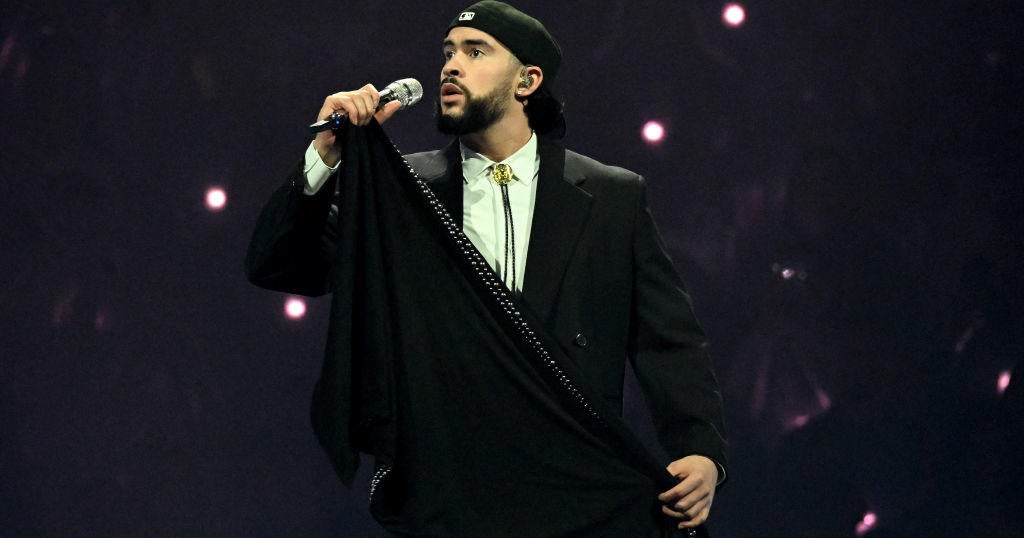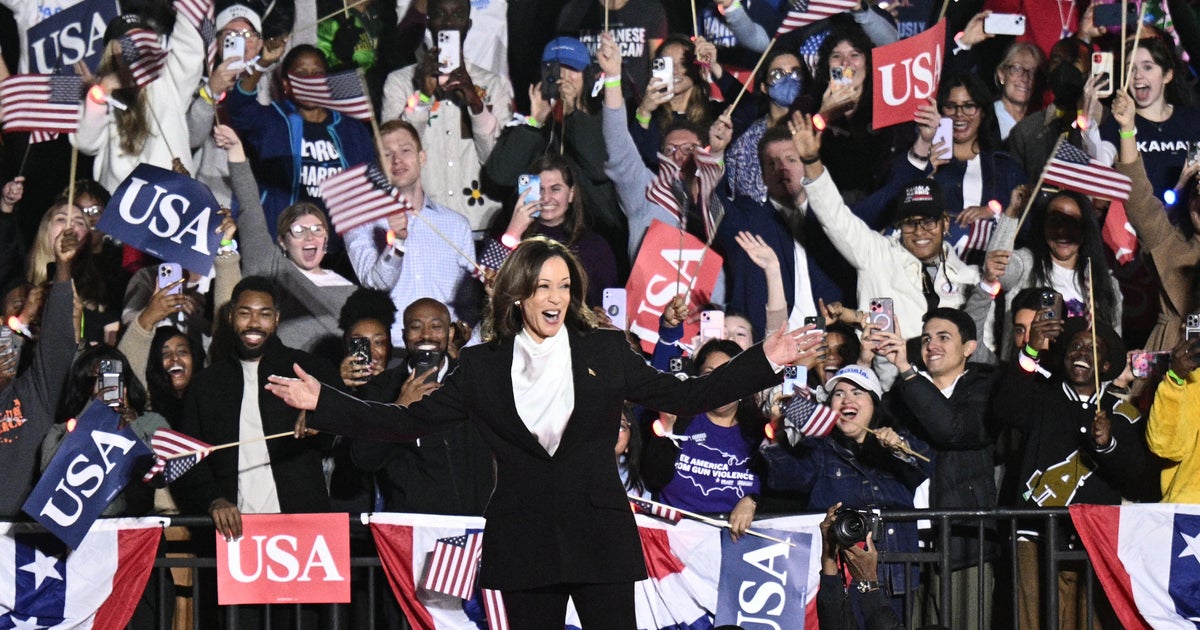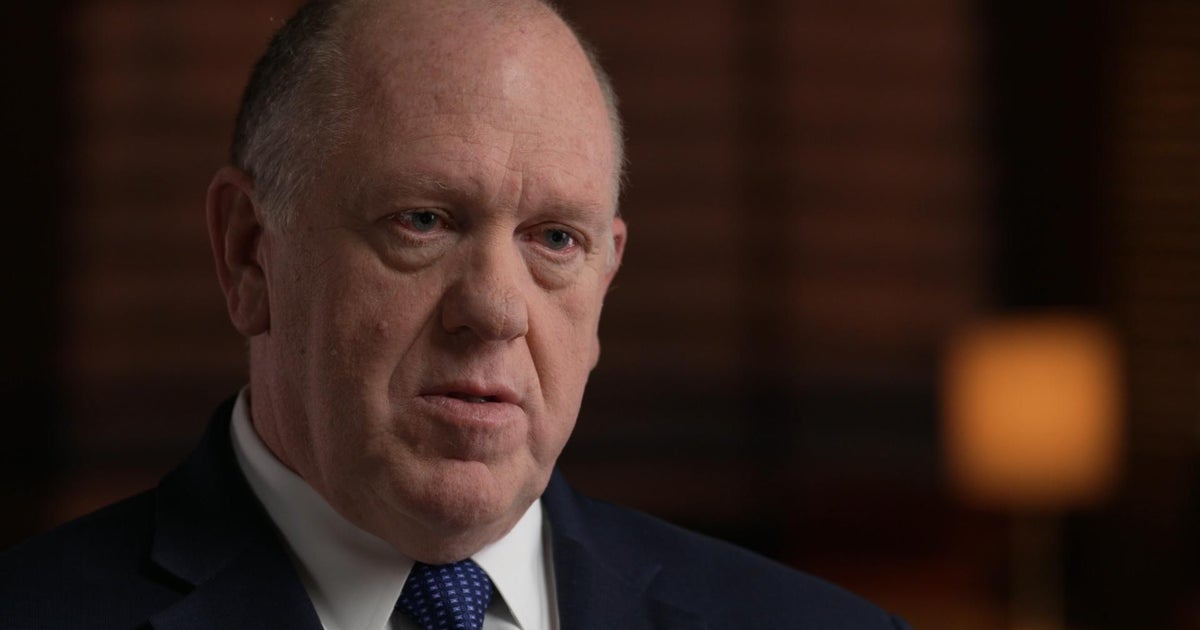Can Puerto Rico vote in U.S. presidential elections? What to know amid backlash from Trump rally comment
Washington — People in Puerto Rico who are angered by an offensive remark about the island at former President Donald Trump's campaign rally at Madison Square Garden in New York on Sunday have little recourse because residents of the territory cannot vote in the presidential election.
But there are millions of Puerto Ricans living in one of the 50 states who are eligible to vote. According to the Pew Research Center, Puerto Ricans make up the second-largest Hispanic voting group, with nearly 6 million voters living in the mainland U.S. as of 2021. Pennsylvania in particular has a sizable Puerto Rican population whose votes could make a difference in the battleground state.
Days before Election Day, Trump's campaign is trying to distance itself from comedian Tony Hinchcliffe who made several racist and crude insults toward minorities at the rally, including calling Puerto Rico a "floating island of garbage."
Can Puerto Ricans vote in U.S. presidential elections?
There are 3.4 million residents living on the island of Puerto Rico, according to the 2020 Census. Those residents of Puerto Rico are not permitted to vote in presidential elections, though they're U.S. citizens and can participate in the Republican and Democratic presidential primaries.
Puerto Ricans can vote in federal elections if they live in one of the 50 states or Washington, D.C., and are registered to vote.
What did Tony Hinchcliffe say about Puerto Rico at the Trump rally?
Racist jokes made by comedian Tony Hinchcliffe, who goes by the stage name Kill Tony, overshadowed what was supposed to be Trump's closing message.
"I don't know if you guys know this, but there's literally a floating island of garbage in the middle of the ocean right now. I think it's called Puerto Rico," Hinchcliffe said.
Trump's campaign said Hinchcliffe's jokes, which also included offensive jokes about Black people and Latinos, were not pre-approved or reviewed by the campaign.
"This joke does not reflect the views of President Trump or the campaign," senior adviser Danielle Alvarez said in a statement.
Puerto Rico's largest paper backs Harris' presidential bid after controversy
On Tuesday, Puerto Rico's largest newspaper, El Nuevo Día, endorsed Vice President Kamala Harris and urged the five million Puerto Ricans living in the states to vote for the Democratic nominee.
"To all Puerto Ricans who can vote in this upcoming United States election and represent those of us who cannot: Vote for Kamala Harris," it said.
The editorial slammed Trump for continuing "a discourse of contempt and misinformation" against Puerto Rico that shows "disdain for a people who do not have the power of the vote to defend themselves."
"Trump's erratic and narcissistic behaviors reveal a lack of balance and ability to build agreements and solutions to the serious problems facing the United States, its territories, and the broad group of its allied countries," the newspaper said.
Why isn't Puerto Rico a state?
There's been a yearslong debate over the status of Puerto Rico, which became a U.S. territory in 1898 after Spain ceded it to the U.S. following the Spanish-American War.
Congress has been reluctant to give Puerto Rico statehood because of the potential economic costs, as well as concerns about how it would change the balance of power in Washington.
If it became a state, two senators would be added to the Senate and it would receive proportional representation in the House.
Puerto Rico has held a series of nonbonding votes on its relationship with the U.S., most recently in 2020 in which more than half of voters said the island should be granted statehood.
What other U.S. territories are excluded from presidential elections?
Like Puerto Rico, residents of these U.S. territories cannot vote in presidential elections: American Samoa, Guam, the Northern Mariana Islands and the U.S. Virgin Islands.
Except for residents of American Samoa, those born in the other four American territories are U.S. citizens and can vote in federal elections if they live in one of the 50 states or Washington, D.C. Residents of American Samoa, who are U.S. nationals, are not eligible to vote in federal elections even if they live in one of the states.



